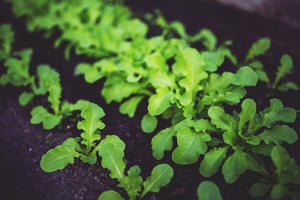By Brian Cornelious, PhD, Director of Applied Sciences
 The plant biostimulant industry today is improving agricultural sustainability and soil health while generating significant new economic growth. This global growth is being driven by the need to produce more food for a growing world population, and to do so more sustainably in response to demands from consumers, advocacy groups, and regulators.
The plant biostimulant industry today is improving agricultural sustainability and soil health while generating significant new economic growth. This global growth is being driven by the need to produce more food for a growing world population, and to do so more sustainably in response to demands from consumers, advocacy groups, and regulators.
Plant biostimulants can include products such as bacterial or microbial inoculants, biochemical materials, amino acids, humic acid, fulvic acid, and seaweed extracts.
As part of the Biostimulants Council, Agricen and other council members are working to advance policy and regulatory frameworks that increase biostimulant market access and encourage research and innovation in the United States. A key part of this work is to develop an industry definition of biostimulants in the U.S., similar to work done in Europe that led to the recent inclusion of plant biostimulants in the EU Fertilizing Products Regulation (FPR) that took effect in July 2019.
Within the FPR, plant biostimulants are defined as:
"A product stimulating plant nutrition processes independently of the product’s nutrient content with the sole aim of improving one or more of the following characteristics of the plant or the plant rhizosphere:
- Nutrient use efficiency
- Tolerance to abiotic stress
- Quality traits
- Availability of confined nutrients in soil or rhizosphere."
Agricen's products, which are based on nature and built on science, are designed to give growers the tools they need to increase plant productivity, quality and sustainability by addressing these points.
As groups across the spectrum work diligently to address the urgent issues confronting agriculture around the globe, we at Agricen are looking forward to continuing to participate in and meaningfully contribute to the search for new innovations and solutions.
You can learn more about biostimulants for agriculture by downloading our "Growing for the Future" white paper.






